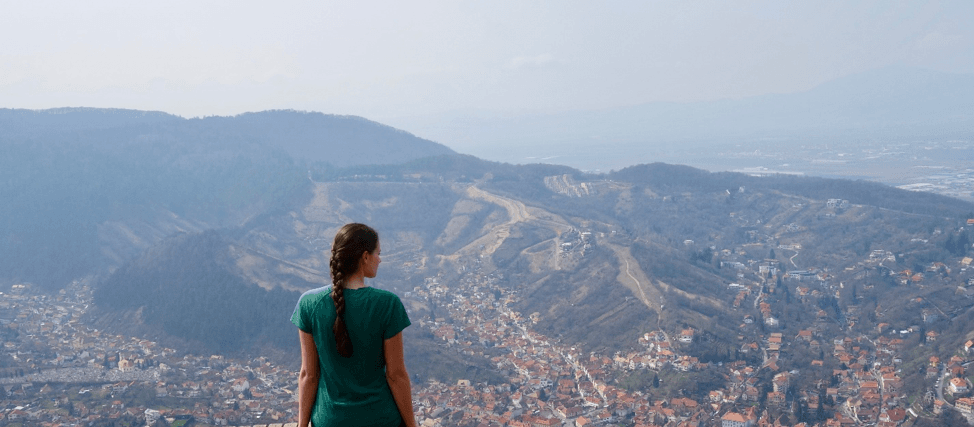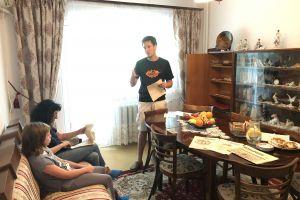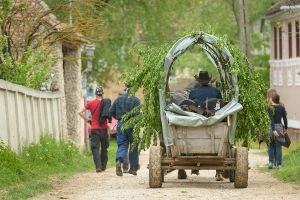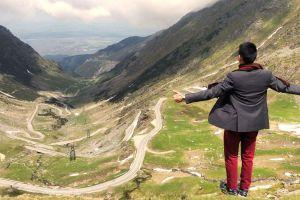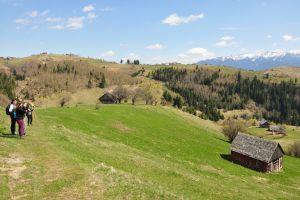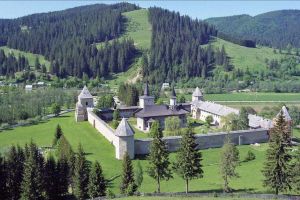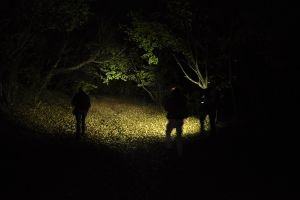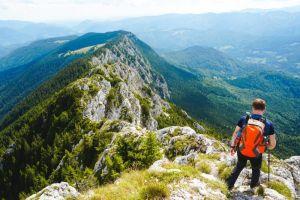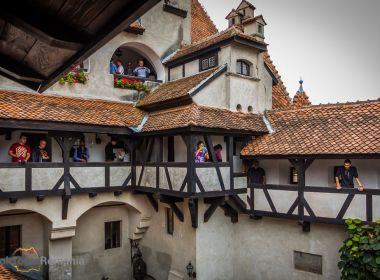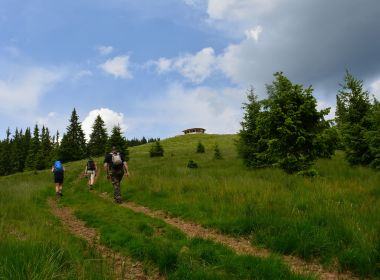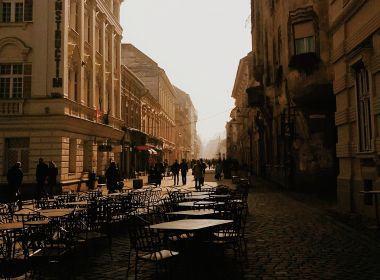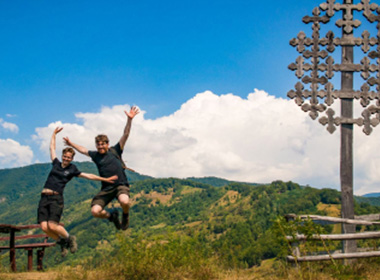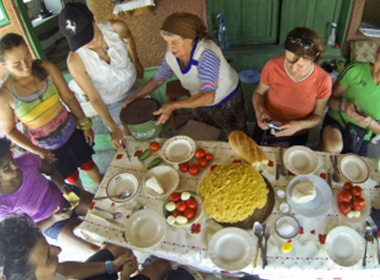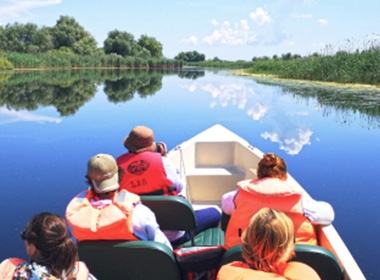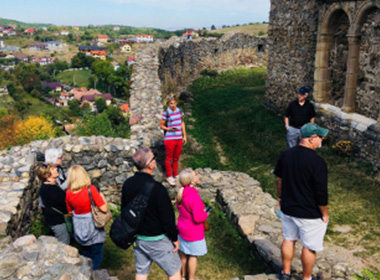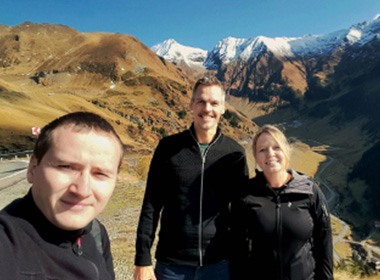- “How about we visit the “land of Dracula” this year?”
- “You mean Romania? Is it safe? Besides the vampires, you know…”
Did we read your mind? :) If yes, then this article will answer the question is Romania safe to visit? How friendly are Romanians with tourists? What are some common safety concerns tourists should know about when visiting Romania, including tourist traps and scams, and how do these compare to other European cities?
To answer this, we need to look at safety from both a general and tourism perspective. By the end, you’ll have a clear idea of the few risks tourists might face and how to avoid them for a trouble-free holiday in Romania.
Whether you’re a solo traveler, female, or elderly, Romania is an emerging, beautiful destination. Traveling to Eastern Europe may seem adventurous or risky - but much has changed in the last 10 years especially in Romania.
Only 35 years ago our country was closed off for tourism. But now not only is it safer for visitors - but it's also an undiscovered and surprising destination!
While there are still some concerns—like anywhere—nothing major should stop you from visiting. Major city streets and inter-city highways are well-maintained, though some rural roads can still be tricky. But we'll talk about everything.
So let’s take a closer look at this topic:
Table of contents
- Misconceptions about safety in Romania
- Before You Travel. Tips for Good Research and Planning
- Travel Documents for Visiting Romania
- General Safety Profile and Local Laws of Romania
- Safety in major cities for tourism
- Safety in rural areas
- Public Transport Safety Tips
- Driving and road safety in Romania
- Are trains in Romania safe?
- Is traveling by bus in Romania safe?
- Common taxi scams and how to avoid them
- The best alternative to taxis
- Personal safety tips for your personal belongings. Crimes, petty theft and others
- Electronic payments and credit card fraud
- Accommodation Safety. Choosing a Safe Hotel
- Emergency services, travel insurance and hiking safety
- Medical emergencies and travel insurance
- Pharmacies, vaccines and small health issues
- Tap water and food safety
- Animal encounters
- Safety tips for solo female travelers
- Conclusion
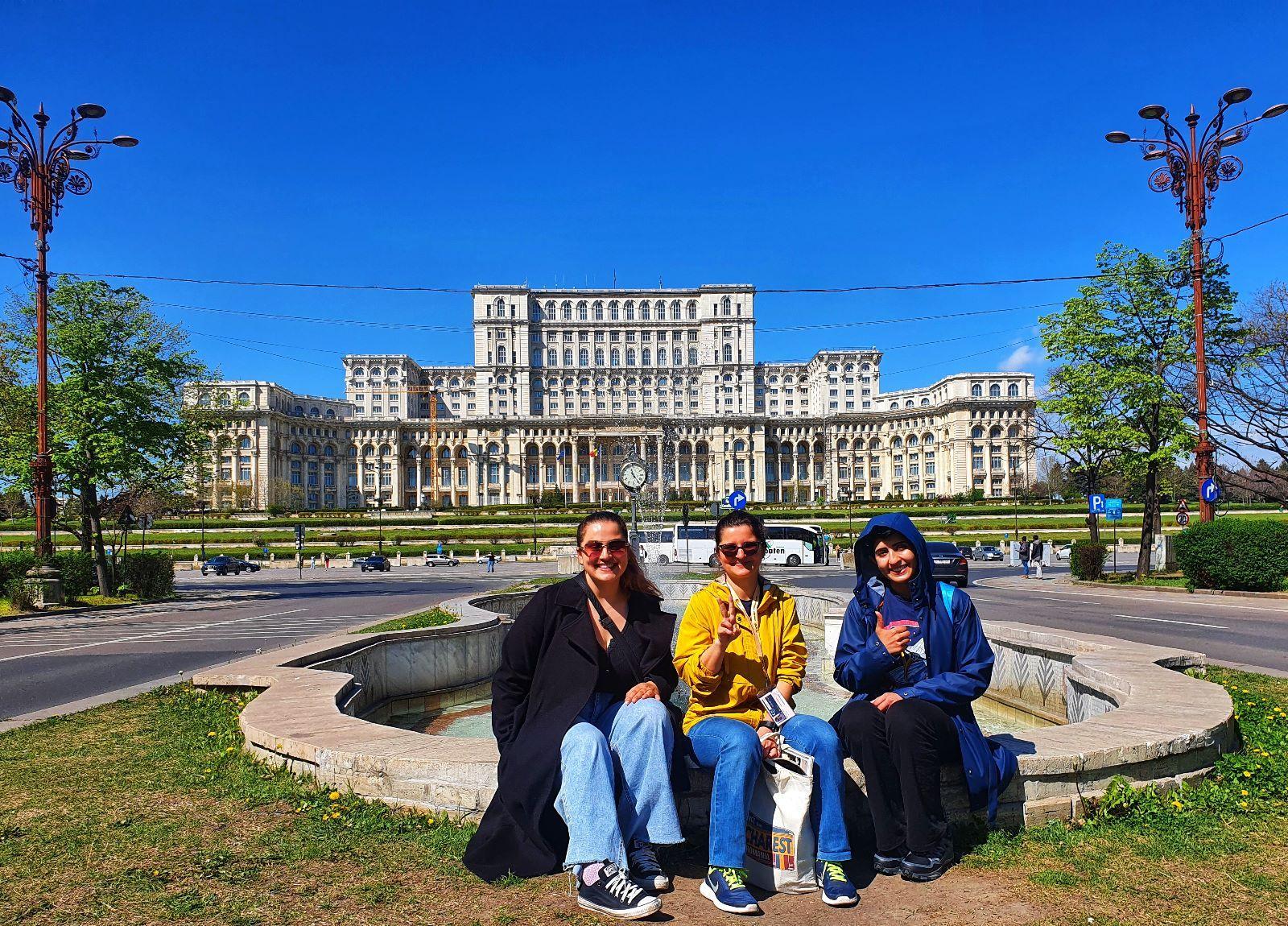
Misconceptions about safety in Romania
If you’ve never been to Romania before, or don’t have friends who have, you may have heard certain horror stories or prejudices about our country. The most common ones include:
- Romania is where Dracula’s Castle is and there’s nothing else to see here
- Romania is still a communist country (LOL), poor and underdeveloped
- Romanian people are gypsy (ethnic Rroma) who engage in lots of petty theft
- Romania is a corrupt country unsafe for foreign visitors
- what else...?
These stories come from foreign travelers who visited Romania in the '90s and early 2000s, during what I call our "Wild West" phase of social, political, and economic turmoil. The Romanian communist regime under dictator Nicolae Ceaușescu was one of the most oppressive, making our country’s early transition to freedom and capitalism bumpy and challenging.
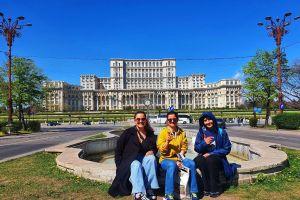
Communist Walking Tour: History, Megalomania & Hidden Sights
Start from: Revolution Square next to the Rebirth Memorial (The patatoe)
Since Romania joined the European Union in 2007, much has changed. The economy, lifestyle in big cities, and standards for tourism are now quite similar to other urban centres in European countries.
Romanians are friendly, hardworking, and hospitable - perhaps a bit too conservative and protective of our traditional values.
We’re overly proud of our country's tourist potential - for good reason! - and we often complain about our politicians, underdeveloped national roads, and our football teams poor performance...
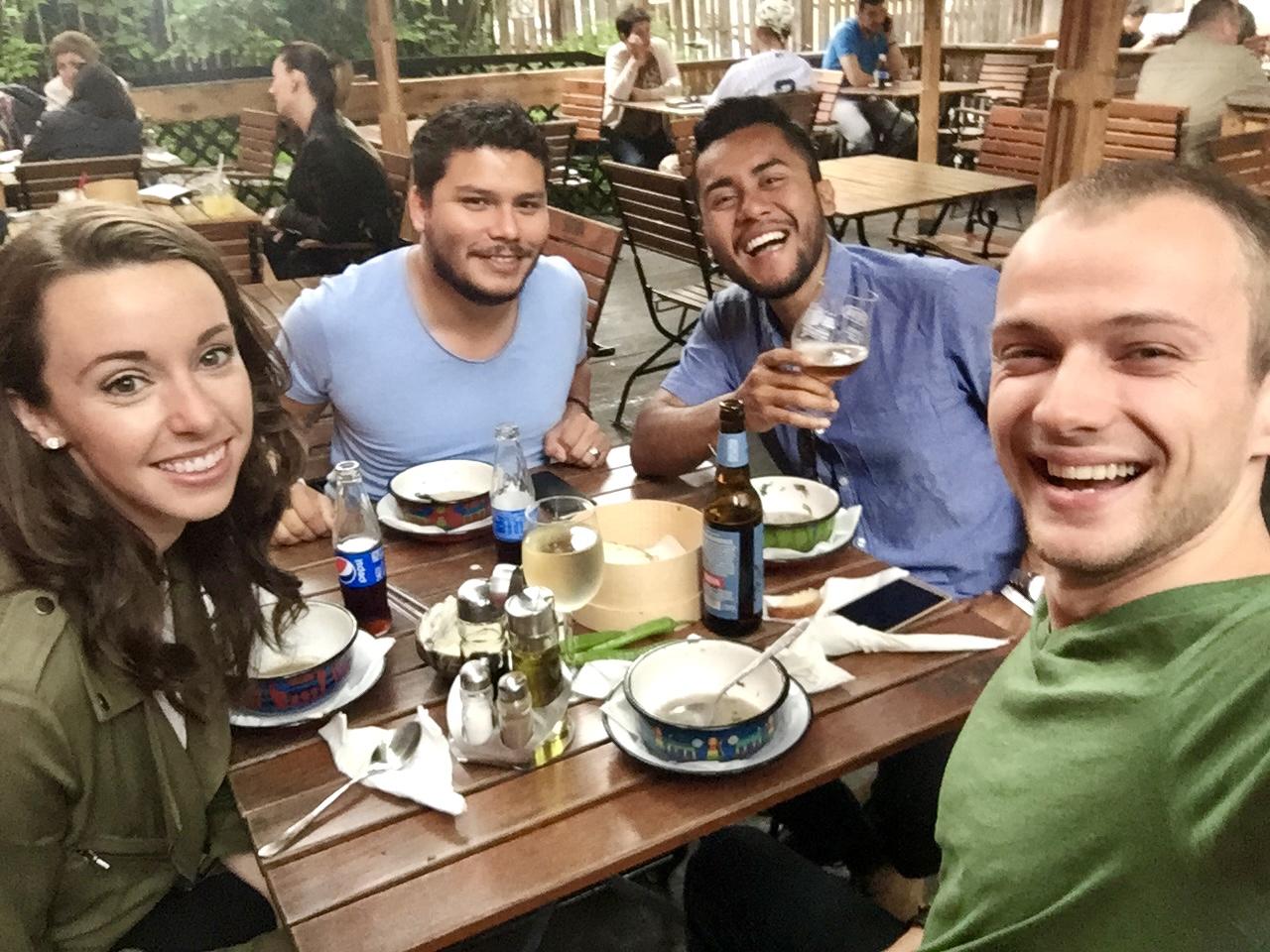
Marius, the founder of Romanian Friend, out with tourists for a traditional meal
Before You Travel. Tips for Good Research and Planning
Before embarking on your Romanian adventure, a bit of homework can go a long way. Start by checking the latest travel advisories to stay updated on any important information. Understanding local laws and customs is crucial. It helps you blend in and avoid any unintentional faux pas.
Plan the specifics of your trip, including accommodation, transportation, and activities - in advance. Whether exploring Bucharest, the serene landscapes of Transylvania or the wild Carpathian Mountains, having a solid plan will help your trip go smoothly. Remember, a little preparation can prevent unnecessary issues later on.
Travel Documents for Visiting Romania
Ensuring you have all the necessary travel papers is a must. Start with a valid passport and check if you need a visa to enter Romania. Travel insurance is also essential; it provides peace of mind and covers emergency situations.
For more details on visa and entry requirements, check our Romania travel guide for more info.
Practical tip: make photocopies of your important documents, such as your passport, visa, and insurance details. Leave a copy with a trusted friend or family member back home. This way, if you lose your documents, you have a backup plan.
General Safety Profile and Local Laws of Romania
Overall, Romania is one of the safest countries to choose as your next travel destination. Don’t take my word for it - the Global Peace Index and other related metrics speak volumes. In 2023, Romania ranked 36 as a safe destination, ahead of Greece (40), France (86), or the United States (132).
Unlike several European cities that have faced terrorism threats, we had a grand total of 0 (zero) terrorist incidents so far, while ethnic and religious minorities live peacefully with Romanian nationals.
Gun laws are strict so mass shootings aren’t a concern. Random street attacks or hate crimes are also rare.
Finally, the Ukrainian-Russian war isn’t a major threat, as Romania has been part of NATO since 2005. If Russia were to attack Romania or another member state, the entire alliance would respond.
And by now it’s pretty clear that Russia is not the military power everyone thought they were… :)
Street protests can happen, especially in Bucharest, for socio-economic reasons or against our politicians. But they never turn violent like those in France and there are no strikes that paralyze the country either!
Safety in major cities for tourism
We wrote a guide specifically on Bucharest safety because our capital didn’t have the best reputation in the early 90s and 00s - but things have changed a lot since then. And, yes, it's worth visiting!
The other major cities for tourism such as Brasov (one of the most popular), Cluj-Napoca, Sibiu, are safe and will feel very familiar to the frequent traveler.
So as long as you use your common sense and take general precautions like keeping an eye on your belongings (especially travel documents), not waving wads of money around and not getting drawn into obvious tourist scams, you’ll be fine.
Safety in rural areas
Our country is also safe in rural areas, especially in the main tourist regions of Transylvania, Bucovina and Maramures where you’ll find the most popular tourist attractions and things to do in Romania.
Sure, you need to be extra careful at crowded tourist attractions such as Bran Castle, Romania’s #1 tourist hotspot, or Sighisoara Citadel, the most popular UNESCO world heritage site. But this is true everywhere in the world!
On the flip side, there’s nothing to worry about while riding horse-drawn carts through villages!
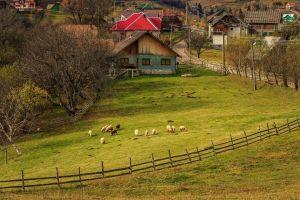
3-Day BEST of Transylvania Tour: Brasov, Sighisoara, Bran & Viscri
Start from: Bucharest
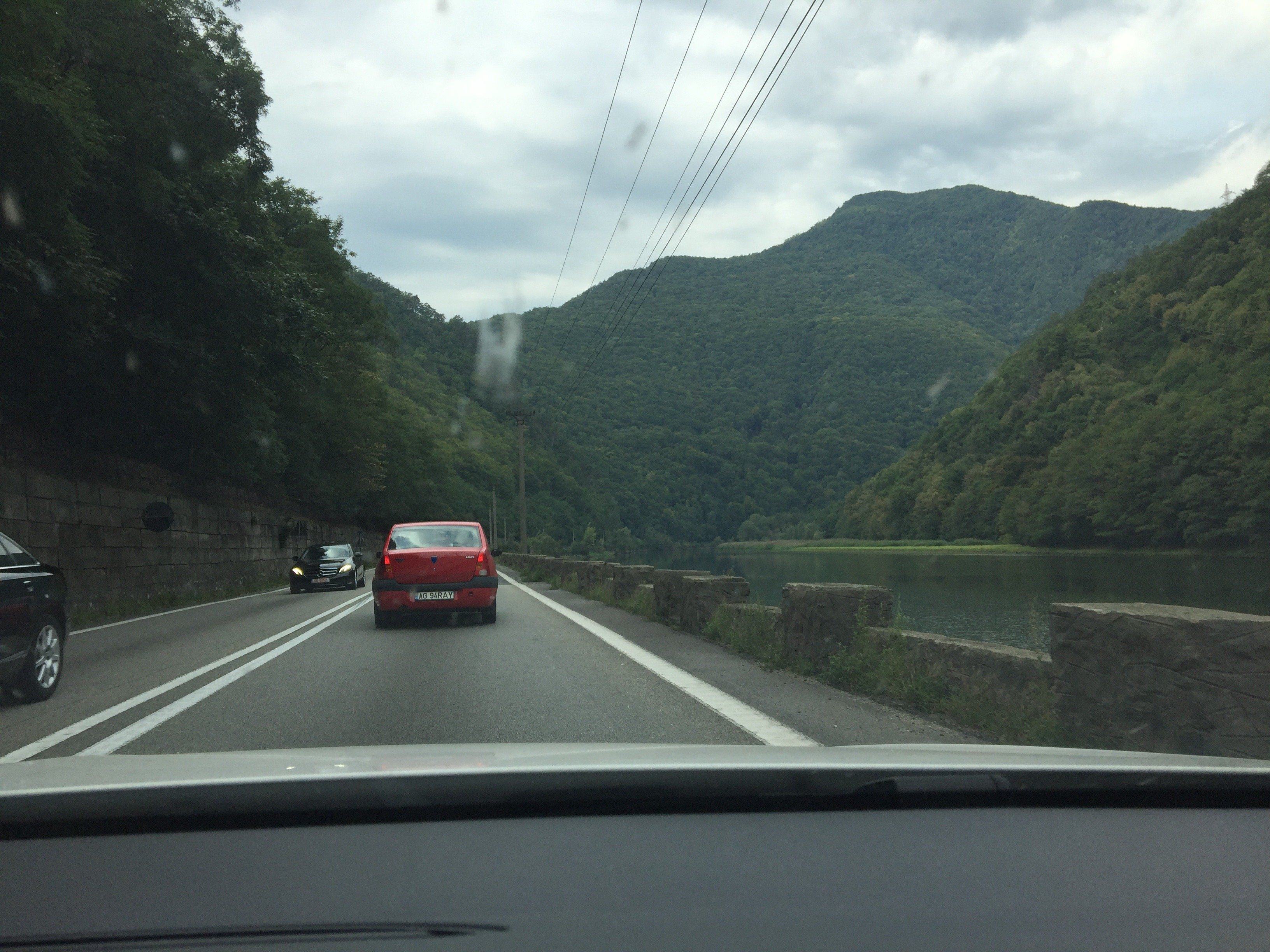
Public Transport Safety Tips
Inner-city travel is usually safe and comfortable with public transportation by using the extensive bus and tram networks. Taxis and ride-sharing companies such as Uber and Bolt are very convenient, cheap and safe, even in smaller towns.
Pickpocketing may be something to guard against, like in any urban hub, but with the most basic type of protection - like keeping an eye on your bag in crowded areas, ddduh! - you'll be ok.
Our country boasts a wide range of public transportation options and you might want to check our travel guide for public transport in Romania for more info on how to travel between metropolitan areas and across the country.
Driving in Romania really is an adventure
Driving and road safety in Romania
Unfortunately, Romania is known for having the highest number of road accidents and deaths caused by aggressive or reckless driving.
This is due to the underdeveloped infrastructure of national roads (mostly one-lane roads) and heavy traffic. So many drivers with powerful cars engage in risky or reckless manoeuvres.
So, besides being a responsible driver who can keep his cool, you also need to be cautious. If you see other drivers being impatient, or trying to overtake you - let them pass and keep your distance.
Local insight:the alcohol tolerance for drivers in Romania isZERO!There are severe sanctions if you are found driving under the influence.
Be aware that police are conducting more and more road drug tests and the devices used have very low thresholds detecting even small amounts from medications like cold or anxiety pills.
Currently, there are no limits to prevent innocent people from facing jail sentences due to false positives. Romanian authorities enforce a zero-tolerance policy for drug offences, even in cases where a positive result is caused by medication or past consumption (at least for now).
The best way to stay safe and enjoy a stress-free holiday is to go with a tour guide who is experienced driving on Romanian roads and knows the traffic laws. You won't have to worry about the dangers of this and can enjoy the picturesque views our country offers.
If you're going to isolated areas in rural parts, expect to find a lot of dirt roads, potholes and the occasional horse drawn carts. During bad weather or snow, these roads become difficult to navigate and take much longer.
Even though locals rely heavily on Waze and Google Maps to get around, these don’t offer any info on road conditions so it’s best to get local, on-the-ground info.
Travelling to areas in the Romanian Carpathian Mountains may require a certain level of driving skills too. Expect winding or exposed roads at high altitudes, steep turns, climbs and descends, and even wild animals or wandering livestock appearing by the side of the road.
And if you’re planning to drive during winter in Romania make sure your rental car is equipped for snow conditions. Winter tyres, snow chains, a shovel, enough gas and preferably a four-wheel drive for some areas.
Oh, and if you’re not from the European Union, having an international driving permit is a must if you want to drive or rent a car in Romania.
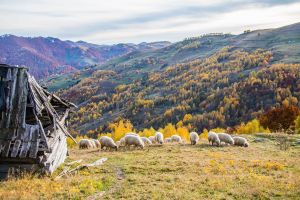
Picturesque Hiking Trip: Apuseni Natural Park, Rural Life & Scenic Picnic
Start from: Cluj-Napoca
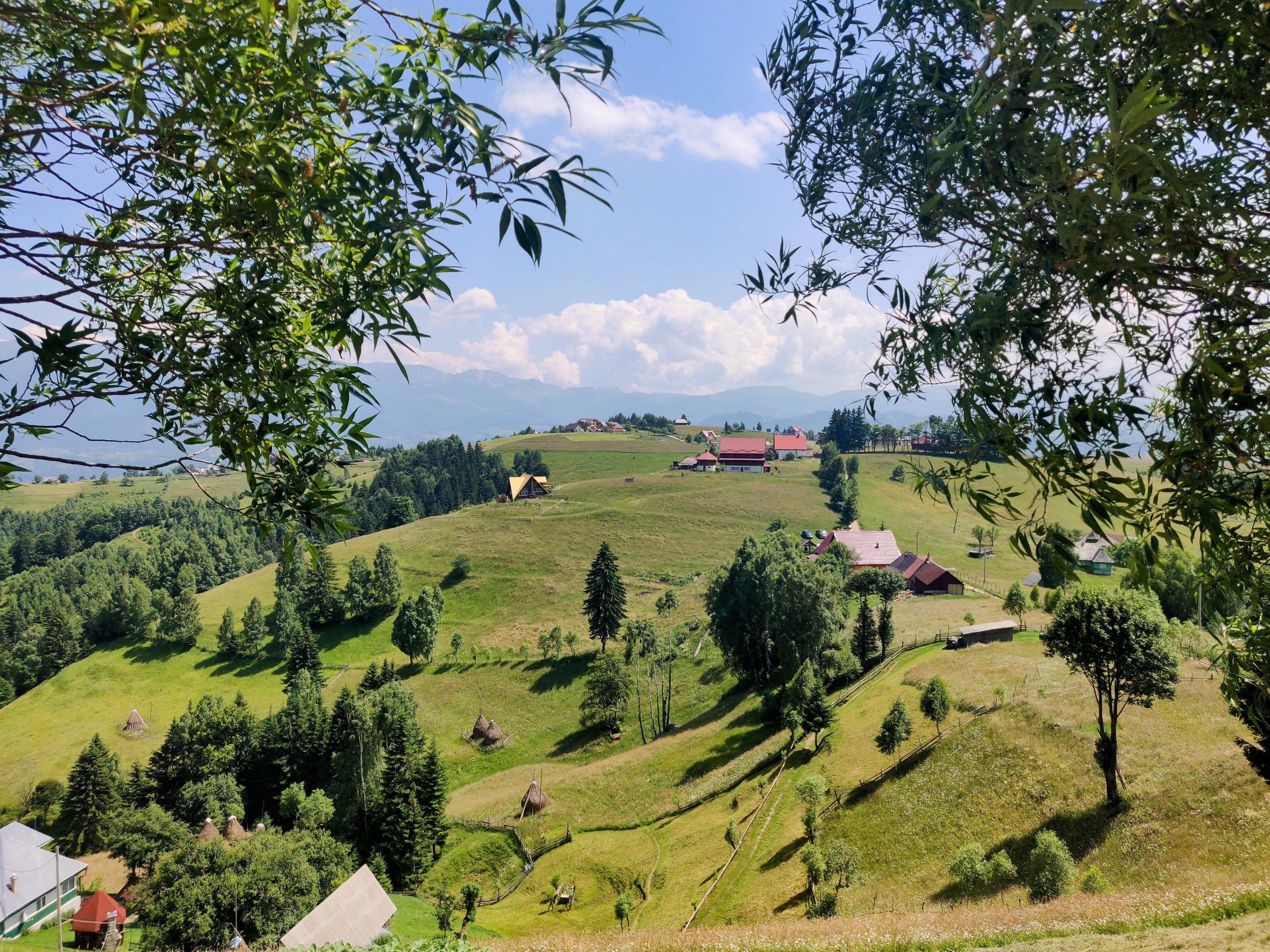
Romania has lots of traditional mountain villages to see
Are trains in Romania safe?
A firm YES and they're a great alternative to driving. However, the old railway infrastructure means intercity trains are slow averaging 55 km/h. Delays are common so bring enough food and water, as most trains lack a restaurant cart.
Night trains with sleeping compartments are a good option for longer routes like from Bucharest to Cluj-Napoca or Timisoara (though internal flights are better options). Sleeper trains are reasonably priced (about 40 Euro) but safe, with small compartments (2-6 people), and the wagon is locked and guarded.
Trains in small-town stations are old and a bit run-down, but they're generally safe. Odd characters may be around, but they won’t bother you if you mind your own business.
- Common sense advice: never leave your belongings unattended in an empty compartment. Take small bags with you to the restroom, and if needed, ask someone to watch your things. Fellow travelers, especially young or solo ones, are usually happy to help, as they might need the same favor.
Any problems on board should be signalled to the personnel who usually travel up and down the train trying to keep things safe and check tickets.

Cluj-Napoca Food Tour: Food Markets, Regional Dishes and Coffee Culture
Start from: Cluj-Napoca
Is traveling by bus in Romania safe?
This is a safe and reliable option, especially where trains aren't available. Buses are modern, usually on time, and the journey is decent. There are scheduled toilet breaks at restaurants and petrol stations. Let the driver know you're a foreign tourist so they can keep track of you at stops. Not everyone speaks English, but they'll try to help—and you can learn some phrases in Romanian too.
Maxi-taxis connect remote areas but be cautious of unlicensed, overcrowded, or reckless operators. Romanian authorities have cracked down on these companies, but if you don’t get an official ticket or receipt, avoid their service.
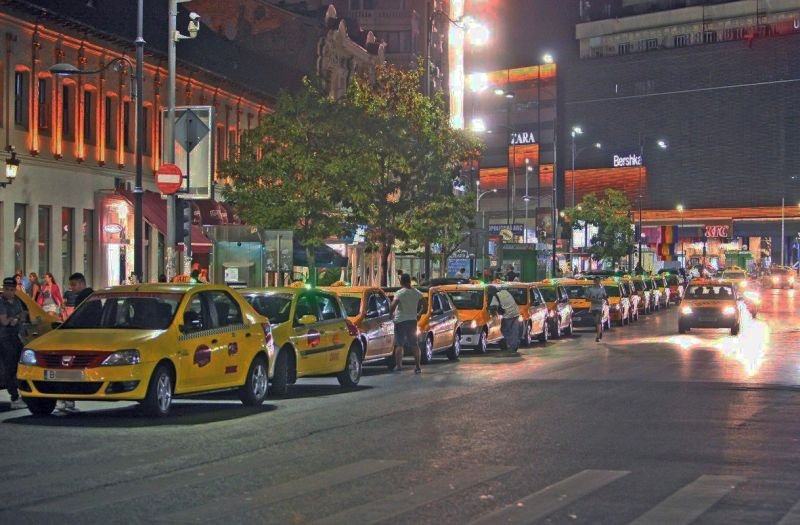
Common taxi scams and how to avoid them
This is probably the only real safety concern tourists need to be aware of when traveling to Romania. Like everywhere else in the world, some pirate taxi drivers will target foreign visitors at airport terminals or train stations and unusually offer their services.
Here are some common taxi scams you should be aware of:
- taxi drivers who claim their metre isn't working and offer a price range instead
- them claiming the meter is on their phone
- or leading you to an unmarked car
- or negotiating fares before starting the ride
Authorised taxis display a company logo, license number, phone numbers, and clear daytime and nighttime fares (2.5 to 5 Lei/km). They also have a visible meter showing the rate and total price of the ride.
Easy rule to follow: If the metre doesn’t work for whatever reason (ask before getting in) or the driver has an unusual, suspicious behavior - don’t get in the car! It's also important to know the location of the nearest police station in case you encounter potential scams or need assistance from a police officer.
Taxi scams can happen in Bucharest, Southern and Eastern parts of Romania, but are rarer now than they used to be, say, 10 years ago. Bucharest Airport taxis or those in the Old Town area were notorious for scamming tourists or people who had too much fun :) - but our guide on Bucharest airport and public transport will help you stay safe.
The best alternative to taxis
Nowadays everyone is using ride sharing apps such as Bolt and Uber which operate in almost all the major tourist cities in our country.
They’re convenient, safe and drivers are user-reviewed. You can pay by card without having to worry about cash and change.
My suggestion is that you check both when ordering since fares and drivers availability may differ.
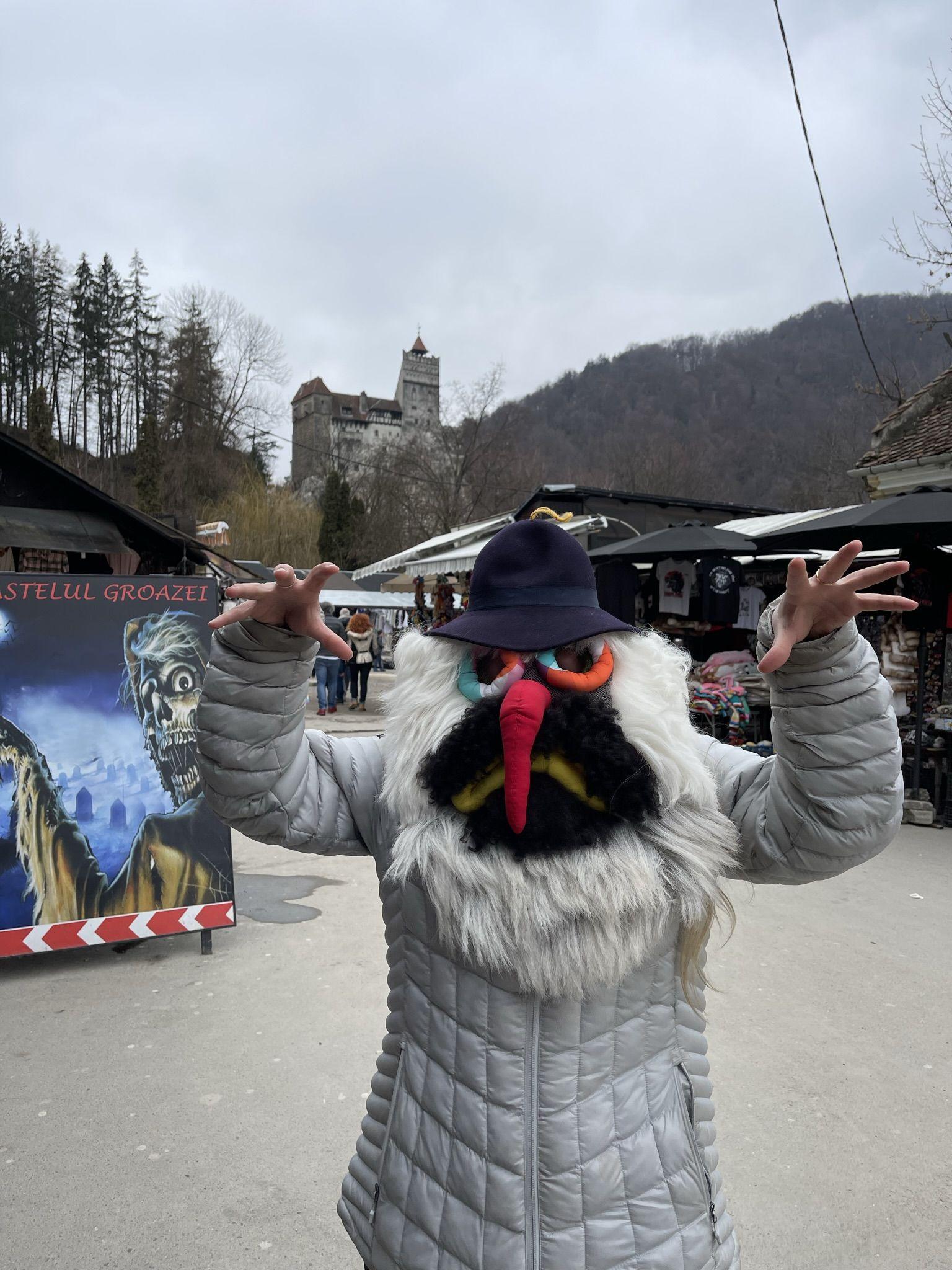
Personal safety tips for your personal belongings. Crimes, petty theft and others
We have so far concluded that Romania is generally a safe country without any major security concerns. Now let's look at individual risks.
- Crime rate
The crime rate is typically low and usually limited to densely populated low-income areas where tourists wouldn't go anyway.
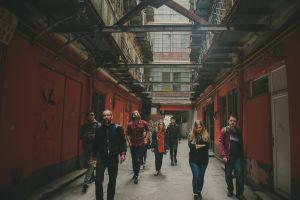
Untold Stories of Bucharest: Prostitution, Holocaust and Communist Terror
Start from: Piata Romana (Romana Square)
Cases of assaults and armed robberies are very few, particularly since local laws prohibit regular citizens from carrying fire weapons or other objects that fall into the weapon category.
The level of violent crime in our country is very low and when they do occur, it's usually in the countryside predominantly in the poorer regions of North-East or in the South.
- Petty theft and small crimes
As a tourist, your main concern should be when visiting tourist attractions and crowded public areas.
Police officers are out on patrol in the city center, major squares or urban areas where public events take place. So the streets are generally safe.
Personal story: In 2017 when I was in Rome someone approached me and before I knew it he tied a bracelet around my wrist. Then he began asking for a donation while his friends gathered around me blocking my way… while the 'gift' or bracelet trick is common, you don't have to worry about it in Romania!
Sure, cases of phone, wallet or bag snatching may occur. But the overall rate of small thefts hasn't increased in recent years and tourists are not particularly targeted.
Electronic payments and credit card fraud
Using credit or debit cards (including mobile payments) is safe and widely accepted in Romania, available almost everywhere from small shops to big-city restaurants and paying for hotel rooms.
In rural areas though it's best to *carry cash*—around 150 lei (€30) per day—since card payments and ATMs are less common.
Watch out for ATM fraud, where machines are tampered with to steal card info. Stick to big banks like BCR, Banca Transilvania or familiar names that have secure ATMs. Also, protect your phone and cards in crowded places to avoid skimming or card theft.
Accommodation Safety. Choosing a Safe Hotel
Choosing the right hotel is key for a great trip. When in Romania pick a safe area ideally close to the city center, and look for hotels with 24-hour security and CCTV. Check reviews for safety insights. Local authorities or tourist centers can offer tips too.
Once you're checked in, lock your door, use the safe for valuables, and be careful with hotel Wi-Fi and personal belongings.
At most hotels in Romania, the minimum age for check-in is 18, and you'll need to show a valid ID at the front desk. If you're under 18, you'll need to have a legal guardian with you.
Common sense advice aside - you have nothing to worry about. Thefts from hotel rooms or AirBnBs are unheard of and relatively rare.
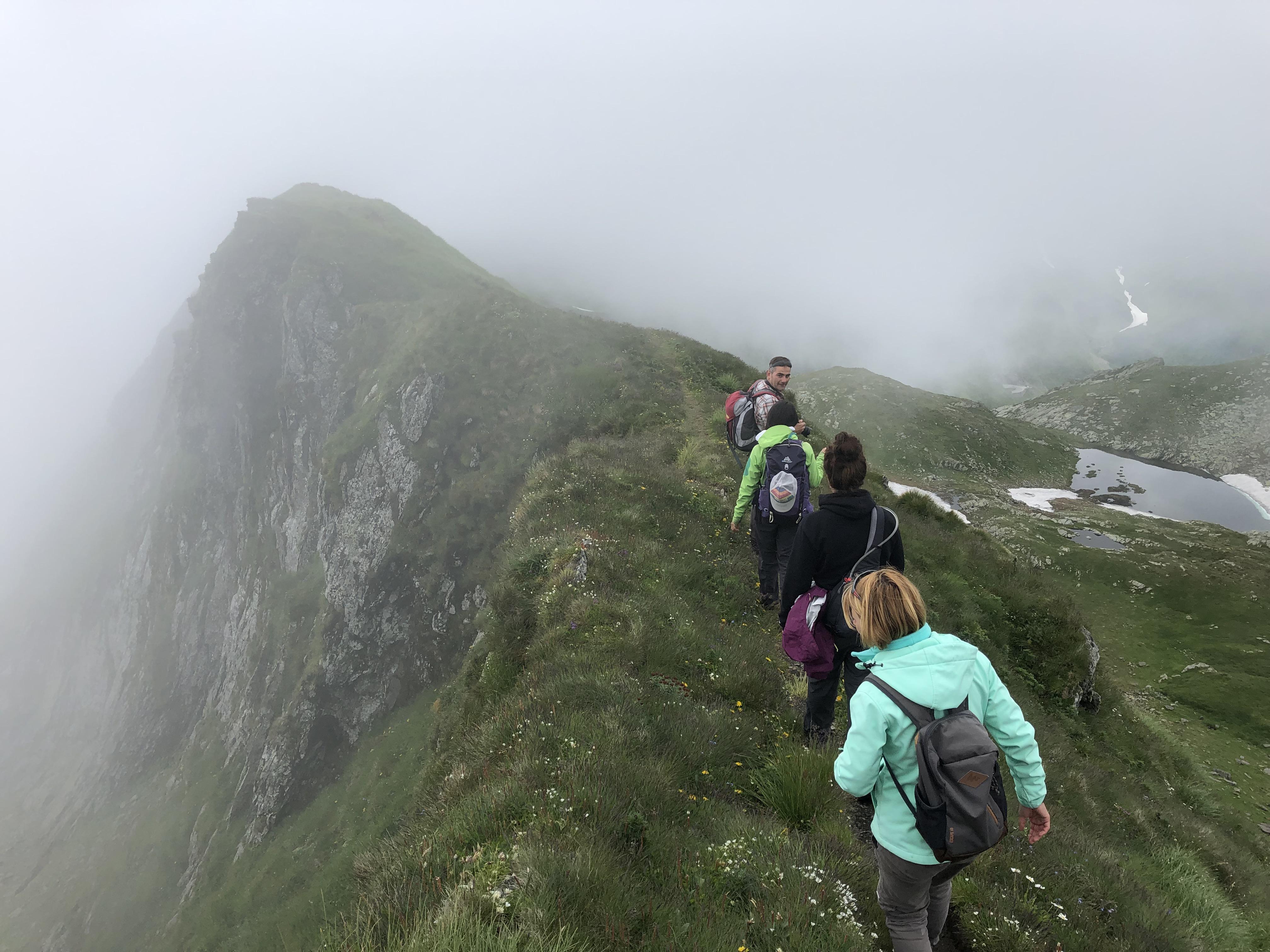
Emergency services, travel insurance and hiking safety
Being a European country, the universal emergency number is 112 and an operator will patch you through the emergency local authorities (police, fire station or ambulance) depending on your needs.
If you're coming from overseas and not sure if your phone will have reception, consider getting an eSIM for travel. . It's a digital SIM card without the hassle - and cheaper!
This applies even if you're in the mountains and in need of special assistance or medical evacuation.
Although I hope you won't run into any medical problems while visiting Romania, it's better to be prepared. So let's talk a little about the medical services in Romania and public hospitals.
Medical emergencies and travel insurance
Health care in our country is public (state-supported) meaning it's free and open to anyone who has EU health insurance or private insurance.
There are private healthcare providers too (eg. Medlife, Sanador, or Regina Maria) with clinics and private hospitals in major cities. But most of them require an appointment.
However, in case of an emergency you will be taken to a public hospital, as private hospitals do not have ER rooms. Otherwise, you don't need special medical provisions for Romania.
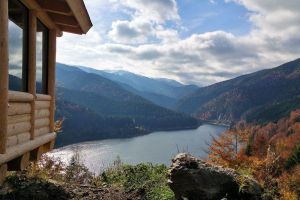
3-Day Hiking & Wildlife Trip at an Eco-Luxury Private Cabin in Fagaras Mts
Start from: Rucar, Arges county
Pharmacies, vaccines and small health issues
As for pharmacies, you'll find them everywhere. Literally, everywhere, in all shapes and sizes. Pharmacists are very helpful and whatever you need they'll find a way to help you.
The recommended vaccines are the ones recommended for the rest of Europe, with a mention of rabies (which can be a deadly disease), not from stray dogs since this problem was taken care of in most big cities, but from wild animals in case you intend to go hiking.
Find the list of vaccines and recommendations here or check your local government services for the latest information and related travel advice.
Tap water and food safety
Drinking tap water is generally safe in bigger cities, even if you hear locals with different opinions on that.
Drinking tap water is generally safe in bigger cities, even if you hear locals with different opinions on that. When travelling in the countryside, choose bottled or filtered water instead. Do what the locals do. Don't be surprised if you get served water from a well either, it's safe!
And if you’re planning to explore the Romanian national parks, you’ll find lots of springs with fresh water.
Not drinkable water is marked as NEPOTABILĂ (not for drinking) signs. You will surely see these on trains and at certain public taps.
If you have special dietary needs it may be wise to bring your own food before travelling into remote areas. You'll find plenty of shopping centers in larger cities (Auchan, Carrefour, Kaufland).
During summer food poisoning can be a problem in the Black Sea resorts due to improper storage or cooking. Choose popular restaurants, with good reviews or in major shopping centres, and don’t eat anything that smells or looks unusual.
Also, if you find yourself near the Black Sea, don't forget to visit the Danube Delta, a UNESCO World Heritage Site. Mother Nature did a wonderful job here - but make sure to bring insect repellent with you. This will help you avoid mosquito bites and diseases spread by ticks, such as tick-borne encephalitis (which is very rare here).
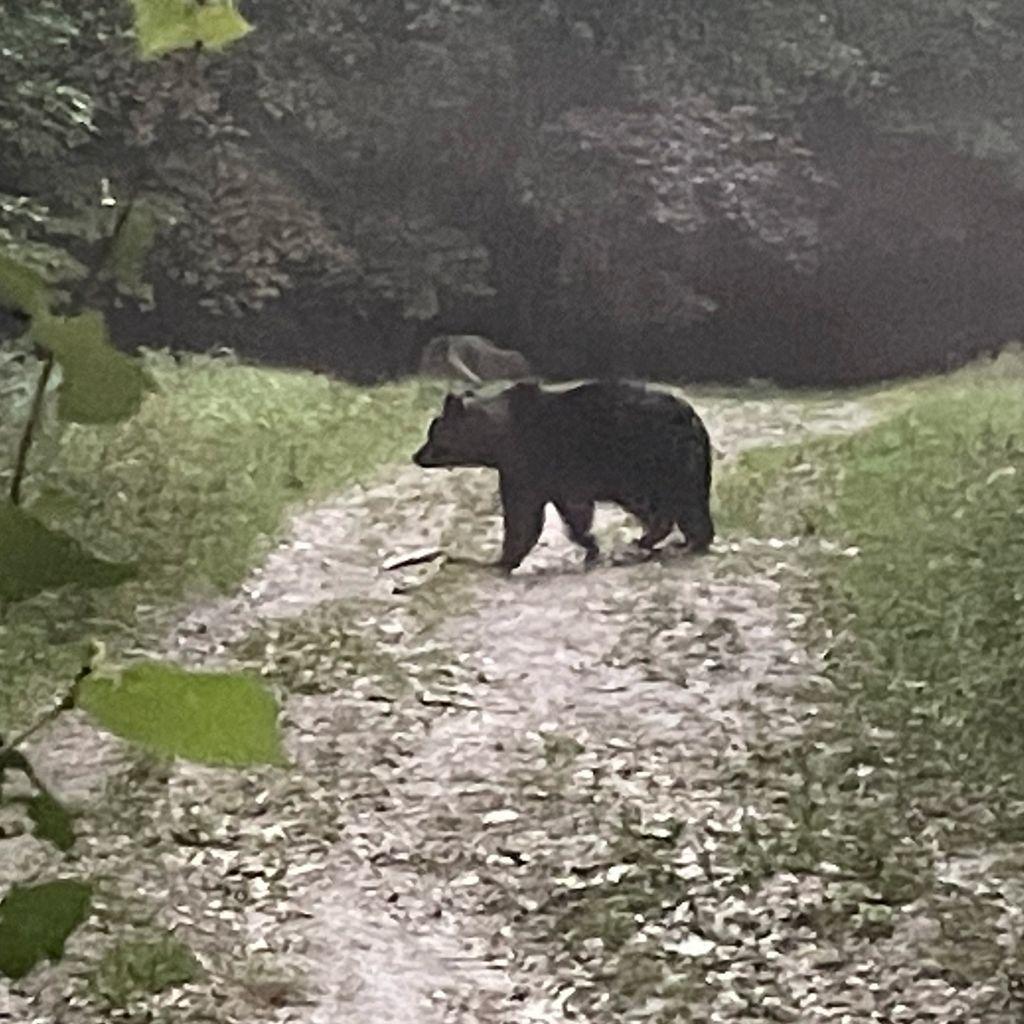
Animal encounters
If you’re planning to go on your own and explore the most popular hiking trails in Romania one extra significant risk to keep in mind is coming into direct contact with wild animals.
Romania is home to the largest population of brown bears in Europe. Local news frequently show their ‘expeditions’ looking for food around mountain cabins and resorts, villages and small towns. And naive, to be polite, tourists feeding them or wanting to take a selfie...
You'll receive alerts on your phone (RO-Alert) if you are in an area where a bear has been spotted. Why we strongly encourage you to go with a licensed hiking guide who knows what to do to prevent such encounters and is equipped with a first aid kit and pepper spray if needed.
You might also spot wild boars and vipers, the most dangerous being the horned viper, common viper, and steppe viper. Found mostly in the Carpathians and Danube Delta, their venom is dangerous, especially in spring after hibernation. If bitten, seek immediate medical help for anti-venom treatment.
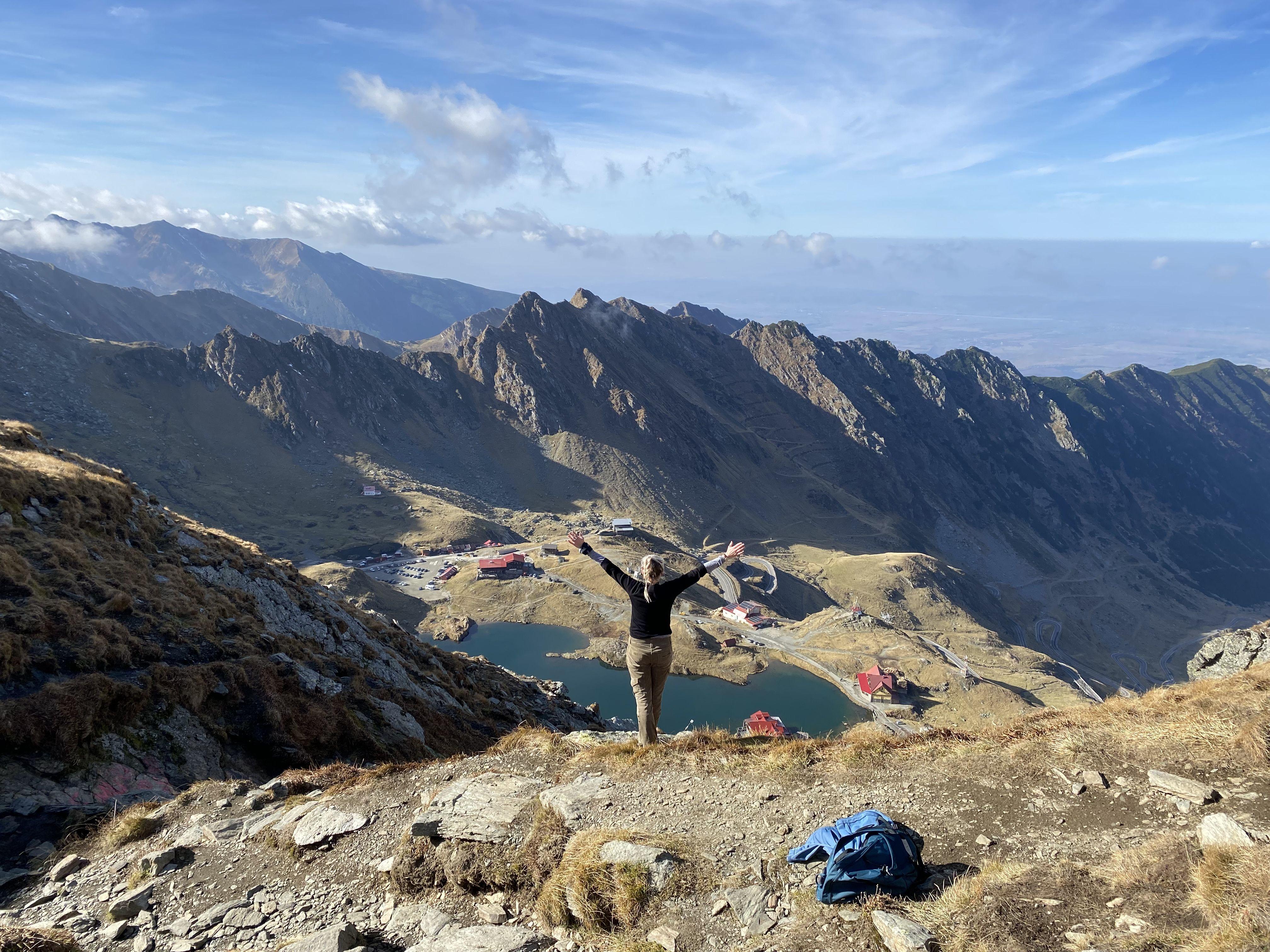
Safety tips for solo female travelers
Solo female travelers are generally safe in Romania, especially in public areas, major cities, and popular attractions.
Use common sense, and everything will be fine. Avoid groups of rowdy or drunk men and walking alone at night in poorly lit areas. In clubs or bars, don’t leave your drinks unattended to avoid drink spiking.
Staring can be common, especially in small towns or rural areas. It's usually harmless curiosity or bad manners, so try to ignore it.
Keep friends and family updated on your plans, and remember the emergency number 112 if needed.
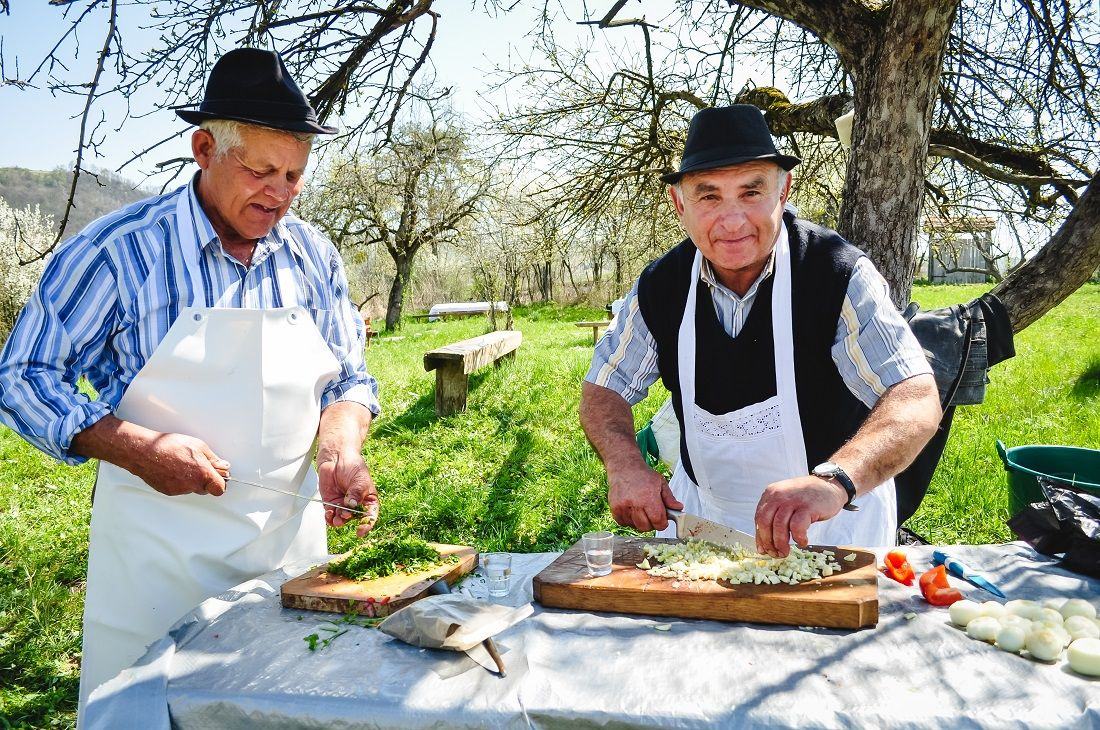
Conclusion
By now I hope you got the general idea: Romania is a very safe country to visit and there's no specific travel advice you should be aware of.
Public safety risks are low, crime rarely affects tourists, and both rural and urban areas are safe to explore as long as you follow basic safety rules and stay aware of your surroundings.
If you had any doubts about visiting Romania, I hope this puts your mind at ease.
Now it's time to start planning your trip! You'll find lots of resources on our website and if you need any help don't hesitate to contact us.
Your Romanian Friend,
Georgiana
